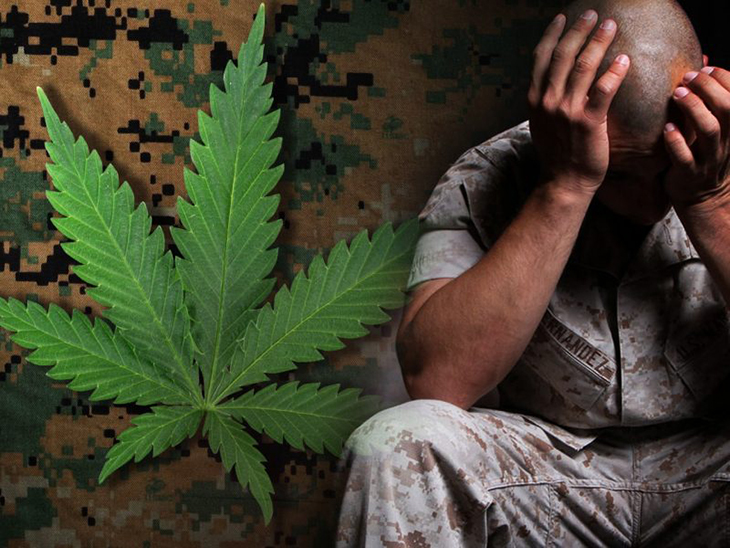
Over the past couple of years, clinical trials studying the medicinal use of cannabis have accelerated dramatically. Researchers are looking into how it might or might not provide relief to people living with conditions ranging from arthritis to Alzheimer’s and from epilepsy to eczema.
But one area in particular has seen the publication of some clinical evidence proving what many patients have been saying for years. That cannabis can bring significant relief to those living with PTSD.
Cutting through the stereotypes
The mere connection of cannabis with PTSD conjures up visions of the grizzled Vietnam vet sitting on his porch with reefer in hand. Sure, there are doubtless many patients who fit that stereotype, but sometimes those Hollywood images do more harm than good. PTSD is a complex medical condition that doesn’t just affect military veterans.
It’s a debilitating condition that can affect anyone who has been through a traumatic experience. It might be connected with military service, but it could as easily be a life-changing accident, a bereavement or being the victim of a crime. PTSD brings chronic and long-term symptoms that can include panic attacks, withdrawal, nightmares, hypervigilance and self-destructive behavior.
Using cannabinoids to treat PTSD
Cannabinoids can be considered the primary active ingredients in cannabis. The Cannaconnection website has a number of articles about their therapeutic uses, but in essence, different cannabinoids have different effects, both psychological and physiological.
There have been studies in the past that indicated cannabis could be used to reduce anxiety or even to prevent people from entering a state of heightened anxiety in the first place. But researchers at Wayne State University in Detroit took things a step further. They ran a granular study on how cannabis affects activity in the amygdala – the part of the brain associated with fear responses to threats – in PTSD sufferers compared with healthy adults who had not been exposed to trauma. The researchers concluded that “THC modulates threat-related processing in trauma-exposed individuals with PTSD” and said it could provide an “advantageous treatment.”
A second study at the Federal University of Parana in Brazil took an entirely different approach, yet reached a similar conclusion. This looked at how cannabinoids can reduce the intensity of traumatic memories, essentially making them easier to compartmentalize and live with. It’s an approach originally proposed by Yale professor R. Andrew Sewell, who explained that fears related to traumatic experiences usually disappear after a few months through a process called “extinction learning” as new memories replace the old. Fall off a horse, and you’ll feel anxious next time you remount, and maybe for the next week or so, but then extinction learning works its magic. With PTSD sufferers, the extinction learning process doesn’t kick in – but the researchers in Brazil found empirical evidence that cannabinoids can jump start it.
Anecdotal support
The scientific research is by no means conclusive. But it is indicative of a theory that already has strong anecdotal support. Survey data has shown that PTSD sufferers who use cannabis have a recovery rate that is 2.5 times higher than those who do not. Meanwhile, further studies are ongoing.


